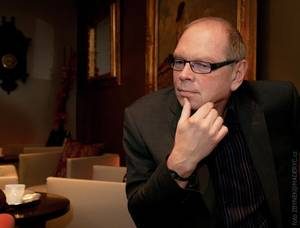 With the arrival of “artificial” or synthetic intelligence the problems are arriving and will arrive too. Jerry Kaplan, author of the book “Human Need Not Apply – a Guide to Wealth and Work in the Age of Artificial Intelligence” speaks about its development as a moral equivalent to Manhattan project – i.e. development of the first nuclear bomb. Questions, if machines will do something similar as we do or if they think, he considers misleading. Computer scientist Edsger Dijstra claims that pursuing the question if machines think is of about the same relevance like studying if a submarine can flow. It makes no sense to be concerned if some neuron clusters forming in machines are similar to synapses forming in the brain – their creation actually is just another way of programming. Machines learn from experience and thus create a chain of synthetic intelligence exploiting the interaction between sensors and action elements and change it into a routine matter. The important question is what level of autonomy machines should enjoy. It is necessary to point out that machines have nothing like human mind – consciousness.
With the arrival of “artificial” or synthetic intelligence the problems are arriving and will arrive too. Jerry Kaplan, author of the book “Human Need Not Apply – a Guide to Wealth and Work in the Age of Artificial Intelligence” speaks about its development as a moral equivalent to Manhattan project – i.e. development of the first nuclear bomb. Questions, if machines will do something similar as we do or if they think, he considers misleading. Computer scientist Edsger Dijstra claims that pursuing the question if machines think is of about the same relevance like studying if a submarine can flow. It makes no sense to be concerned if some neuron clusters forming in machines are similar to synapses forming in the brain – their creation actually is just another way of programming. Machines learn from experience and thus create a chain of synthetic intelligence exploiting the interaction between sensors and action elements and change it into a routine matter. The important question is what level of autonomy machines should enjoy. It is necessary to point out that machines have nothing like human mind – consciousness.
A man is not only able to use synthetic intelligence but becomes its part as well. Development of synthetic intelligence is progressing hand in hand with technological development. Claiming that computers can do only what they are programmed for had lost validity a long time ago. Now, we already experience the situation when we have to pass control to machines, we are not able to react in time to dangers of cybernetic world. A question remains regarding the result of a conflict between two systems, originally founded and controlled by their creators. At the stock market there sometimes are smart systems fighting each other, reacting in a split of a second which brings up situations almost catastrophical. Robotic or algorithmic manipulations with webpages, market and sales and exchange of cookies distort the access to information and endanger manipulation with private data. A tiny record of your activities and interests kept in so-called cookies not only represents important information for those whose webpage you have just visited but becomes a welcomed subject of business for companies specialized on “capturing” cookies and thus tracking your activities and interests too. Efficiency is considerable; such companies are able to count the probability of any of your purchase with the accuracy of over ninety percent! In California, there even is a university called Singularity University, of course in Silicon Valley. The students and teachers take a moment, when we become surpassed by artificial intelligence, for granted and they think it will come so suddenly that at the first moment we will not notice at all. Some kind of an ultramodern religion.
However, machines don´t know how to ask yet. The area of brain activities simulation is an interesting trend. These activities may not only be simulated but also enhanced by a concept of widened reality improving imperfections of our sensory organs. Computer algorithms are able to analyze data in the scope and speed exceeding the capacity of our brains. Expansion of technologies like smartphones enables connection of the planet inhabitants brains, which was not possible a short time ago. On the other hand, we don´t have to worry about a fast arrival of singularity. Computers still don´t know how to ask questions, create new practically useful ideas and innovate. We don´t have to worry about a million of monkeys hammering on keyboards aiming to create a piece worth Shakespeare. Such complex form of communication is and probably will remain unknown to computers. However, if we want to maintain our comparative advantage against computers, we have to focus our education on strengthening the skills which will be outside the reach of computers. But it is difficult to predict them.
Extract from a new book Digital Era which will be published by Albatros Media in Spring.
By Ivan Pilný
Member of the Parliament, ANO party
President of Tuesday Business Network

